Inside a slaughterhouse serving a demand for pork amid COVID-19
‘Everybody loves bacon’ and slaughterhouse is deemed essential for the food chain
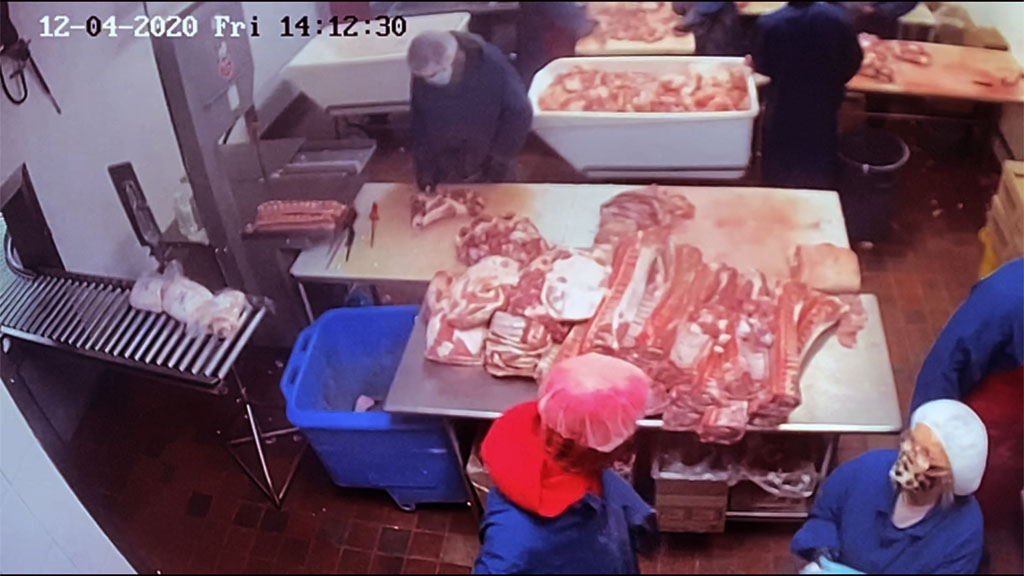
caption
Screenshot of a surveillance camera streaming live at Weston abattoir in Windsor, Ont.Neil Weston kills 750 to 770 pigs a week to satisfy an increasing demand for pork for the holiday season.
“We break them all down, so it’s crazy busy,” Weston, the owner and president of Weston Abattoir, based in Windsor, Ont., said in an interview with The Signal at his slaughterhouse.
“People aren’t going out so they’re wanting to make their products at home now.”
A veteran butcher, Weston says his slaughterhouse satisfies a “strong demand” for pork amid the festive season in the pandemic as hog prices slash.
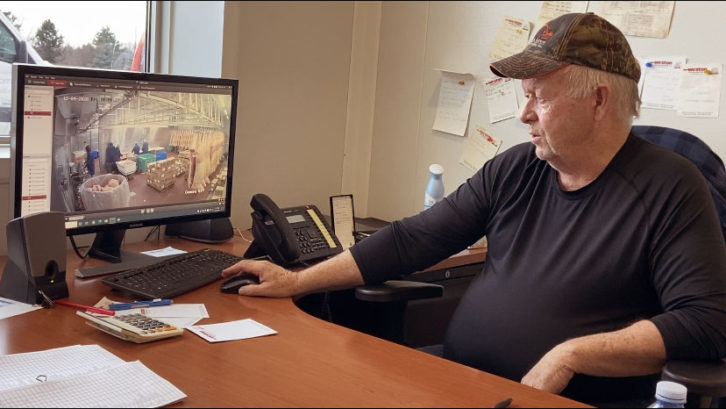
caption
Neil Weston looking at the surveillance video from his office cabin“Pork will never get as expensive as beef does,” he said.
Canada’s food price report released in March 2020 said prices of many commodities including hog and cattle prices “are also dropping” due to a weak global demand.
“Some reports suggest prices went up by 10 to 15 percent,” the authors of the report from Dalhousie Agri-Food Analytics Lab said earlier this year.
“We believe, however, that certain cuts which would normally be sold in food service are being sold, at a premium, at retail. Consumers should not expect dramatic increases at retail at this time.”
Weston said the price drop is a trend that happens at this time of the year. He added there has been no shortage of hogs in the recent times.
“It’s ham season. Christmas is coming along. So, the demand has been there … Now farmers are making their money, packing houses are making money and right now even retail is making money.”
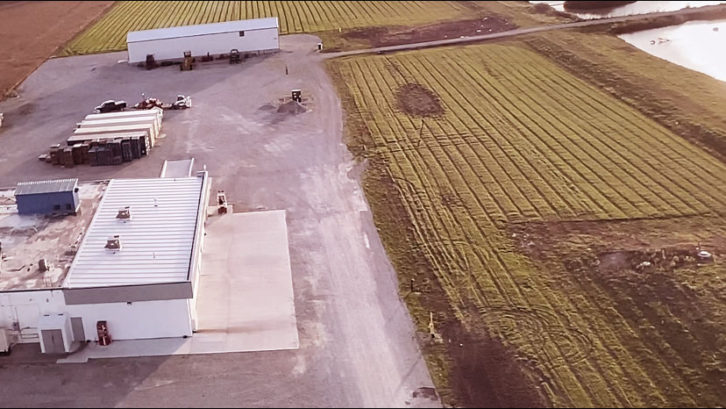
caption
Aerial view of the second building of Weston’s abattoirWeston has been running his family business, which started in 1910, at this building since 1976 and says the older building has been operational since 1926.
“My grandfather started it, then my dad took over and then myself,” he said.
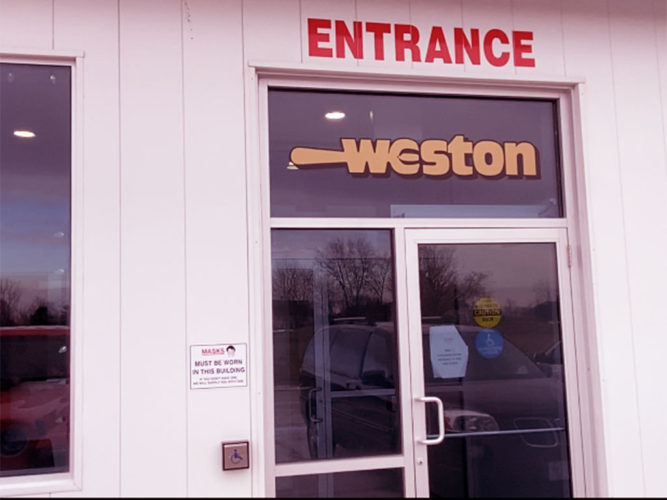
caption
Entrance of the second building of Weston’s abattoirWeston said he knows how to handle products and staff after spending years in the business.
“We’re probably the most expensive in Ontario but we do our products differently, especially handpick stuff for everybody,” he said.
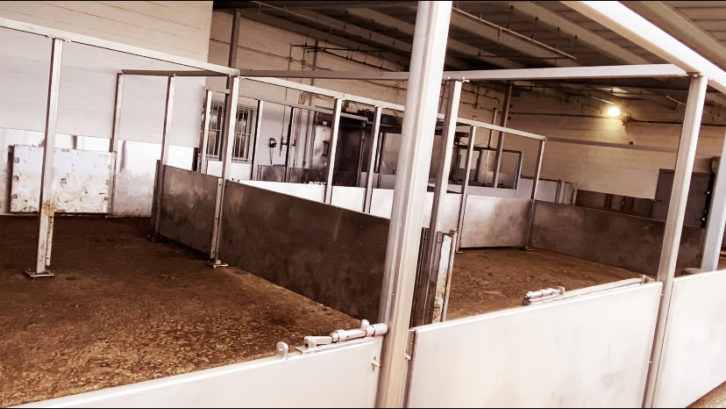
caption
Weston abattoir uses its waste management system to trim the excess fat from the pork they sell.The waste treatment system handles all the liquids exiting the building.
He said the facultative bio reactor installed separates out the liquids and the solids and eliminates all the bacteria from the meat. He added the blood is separated out and is pumped into a sealed, stainless steel tanker.
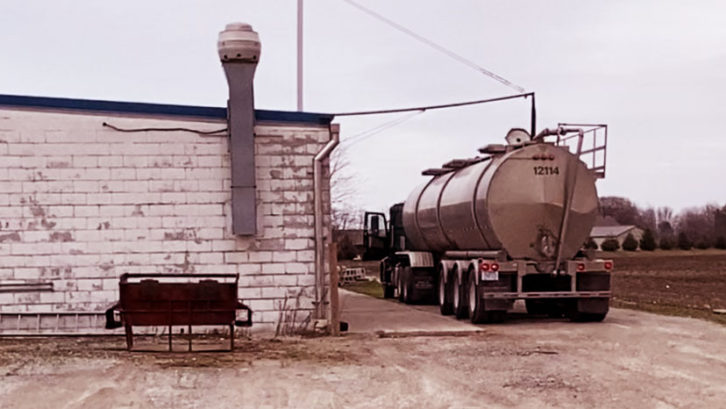
caption
The blood is separated out and is pumped into a sealed, stainless steel tanker“The byproducts we don’t salvage is picked up by one truck and the blood is picked up by another truck,” he said. “It is picked up by what is called a rendering company.”
Weston said the byproducts include all excess fat and bones that are not sold.
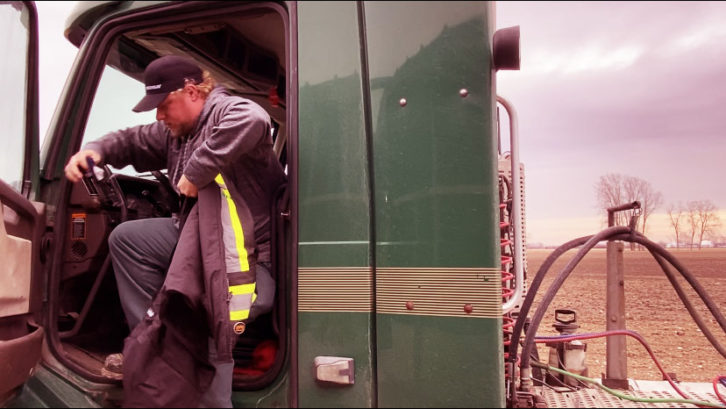
caption
John Epp drives blood tankers for the rendering companyJohn Epp, who drives blood tankers for the rendering company, says he picks up blood from tanks at Weston’s both buildings.
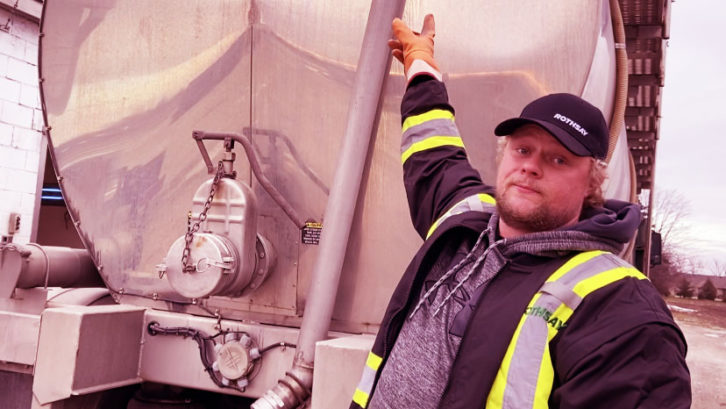
caption
John Epp picks up blood from tanks at Weston’s both buildings.“When I get to my second delivery, we’ve a connection and a line that goes from here to a pump and it just pumps all the way up into the same tank,” Epp said.
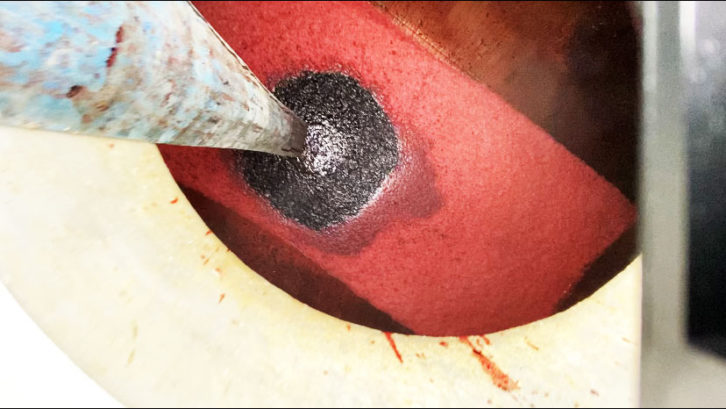
caption
The blood is picked up every day by the rendering company and is safely disposed into the wetland.Weston said the blood is picked up every day and it goes into the wetland.
He said a safe disposal process is in place and he ensures the meat he sells has no excess fat making it “premium.”
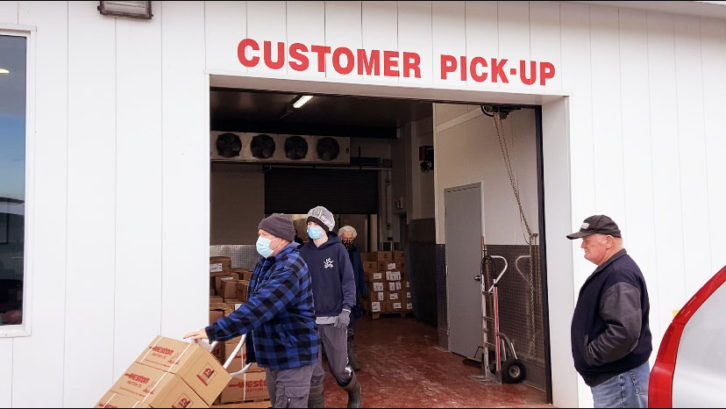
caption
It’s ham season and people want to stay back home and cook their meat.“As the product comes across the table, it’s hand selected for what the customer is looking for … Everything we do is trim.”
Weston said big plants don’t have the time to trim the excess fat and that’s how he differentiates with his offering.

